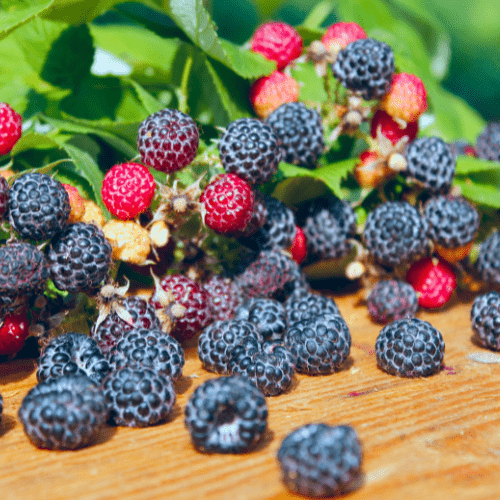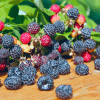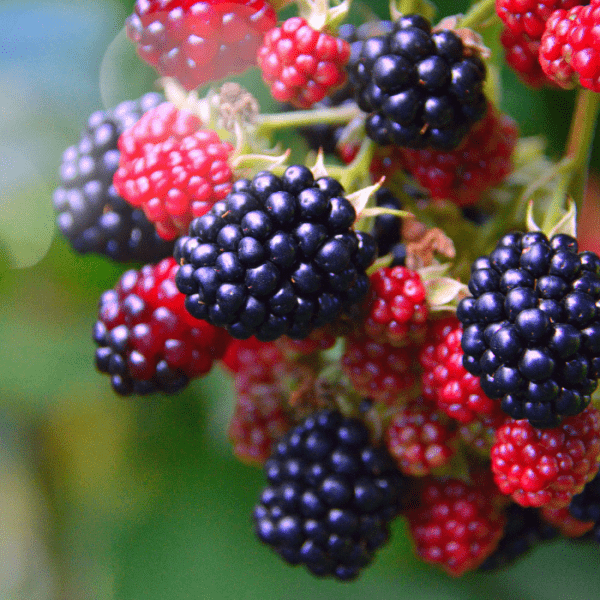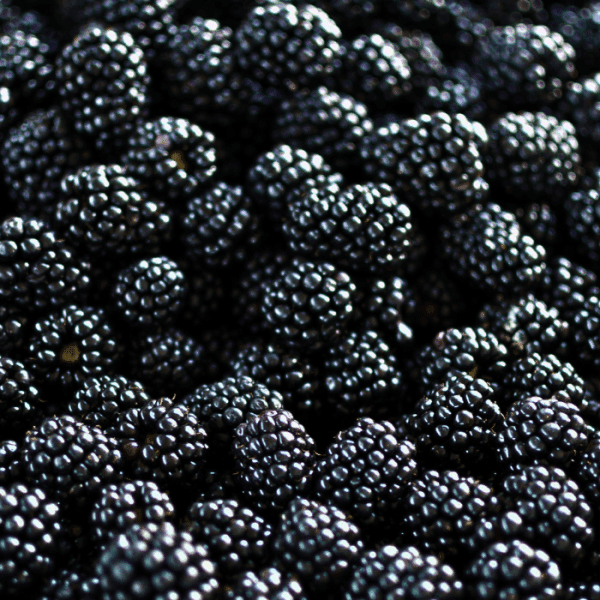Black raspberries are self-pollinating. Their fruits are smaller and seedier than those of red raspberries. Black raspberries are considered a “superfruit” due to their exceptionally high level of antioxidants, which help to protect each cell in our body from free radicals. Black raspberries are used in some medicine to treat pain and bleeding in the stomach and to prevent cancer.
They are best eaten and enjoyed straight from the bush, but can also be sprinkled over ice cream and yoghurt, or added to smoothies.
Position
Plant your black raspberry bush in full sun, sheltered from the wind. This plant is able to tolerate partial shade, as well as cold temperatures of -20° Celsius.
Size
This is a bramble, so it needs a trellis or fence to climb along. Black raspberries can easily grow 3 metres in one year and bear fruit in the first year. So, give it plenty of room to stretch its branches.
Soil Type
Black raspberries prefer soil with a slightly acidic pH level of 5.8 to 6.8. It needs to drain well too so that it can retain moisture but avoid waterlogging.
The Black Raspberry Kit consists of:
An added extra – Use our slow-release nitrogen-rich berry fertiliser R50. Apply 1 teaspoon every 4-5 months.
Mulch
Use Pine Bark Mulch around the base of the plant, not near the stems. Raspberries thrive in moisture-retentive, fertile, slightly acidic soils, which are well-drained and weed-free. Mulch plays an important role in creating these optimal conditions.
Make sure not to have your mulch touching the branches of the plant. This may cause the branches to rot and get infected, especially with new branches (one and two-year-old boughs).
Watering
In very hot weather, water your bush once a day. When conditions cool down a little, two or three times a week should suffice. Do not overwater your bush as this causes root rot. Black raspberries can be planted at any time provided the soil is not waterlogged.
Fertilising
Apply our slow-release nitrogen-rich berry fertiliser R50, every 4-5 months (only 1 teaspoon)
Pruning
Cut back dead canes during the winter, and prune canes that have borne fruit to promote new growth.
Pests
As raspberries produce hardwood canes, watch out for borer.
Harvesting
Our black raspberry variety has multiple fruit flushes, but generally starts fruiting during the middle of the summer season (around December) and can continue right through winter, if the cold is not too harsh.










